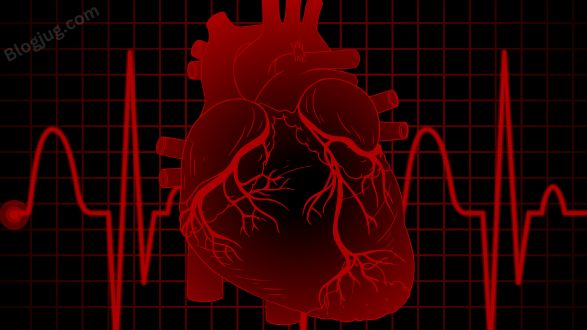
Overview
What is a heart attack?
A heart attack occurs due to a substantial reduction or obstruction in the blood supply to the heart. This obstruction usually develops from the buildup of fat, cholesterol, and other materials in the coronary arteries. These deposits, composed of fatty and cholesterol elements, are called plaques. The accumulation of plaques is known as atherosclerosis.
At times, a plaque might rupture, causing the development of a clot that hinders the blood circulation. Inadequate blood flow can lead to the impairment or destruction of a segment of the cardiac muscle.
A heart attack occurs when a coronary artery, which is in charge of delivering blood and oxygen to the heart, becomes blocked. Over time, fatty deposits filled with cholesterol build up, causing the development of plaques in the heart’s arteries. In the event of a plaque rupture, a blood clot may develop, subsequently obstructing the arteries and resulting in a heart attack. The insufficient blood flow during a heart attack leads to the demise of the heart muscle tissue.
A myocardial infarction is another term for a heart attack.
Immediate medical attention is crucial in order to prevent fatality from a heart attack. If you suspect that you may be experiencing a heart attack, it is imperative to dial 911 or seek emergency medical assistance.
Symptoms of a heart attack?
Symptoms of a heart attack vary among individuals, with some experiencing mild symptoms and others showing severe symptoms. Furthermore, there are instances where individuals may not show any symptoms at all.
Common signs of a heart attack encompass:
1. Symptoms of chest discomfort can include sensations such as pressure, constriction, soreness, tightness, or aching.
2. Pain or discomfort that radiates to the shoulder, arm, back, neck, jaw, teeth, or occasionally the upper abdomen.
3. Fatigue.
4. Heartburn or indigestion.
5. Nausea.
6. Cold sweat.
7. Feeling faint or experiencing abrupt vertigo.
8. Difficulty breathing.
Women might experience unusual symptoms like short or intense pain in the neck, arm, or back. Occasionally, sudden cardiac arrest could be the initial indication of a heart attack.
Certain heart attacks can occur without warning, while others may exhibit warning signs and symptoms well in advance. Persistent chest pain or pressure, known as angina, that persists even after rest, can serve as an early indication. Angina is typically caused by a temporary reduction in blood flow to the heart.
When to see a doctor
If you suspect that you are having a heart attack, it is crucial to seek immediate assistance. Please adhere to the following guidelines:
1. If you believe you are having a heart attack, it is vital to immediately call for emergency medical assistance by dialing 911 or your local emergency number. If you are unable to reach emergency medical services, it is recommended to ask someone to take you to the nearest hospital. Only consider driving yourself if there are absolutely no other alternatives.
2. If a healthcare provider has prescribed nitroglycerin to you, make sure to take it as directed. While waiting for emergency assistance, be sure to follow the provided instructions.
3. If advised, consider taking aspirin. The administration of aspirin during a heart attack can potentially minimize heart damage by inhibiting the formation of blood clots.
Aspirin may have interactions with certain medications. Refrain from taking aspirin unless instructed to do so by your healthcare provider or emergency medical personnel. Do not hesitate to call 911 before taking aspirin; prioritize seeking emergency assistance.
Causes of a heart attack?
Coronary artery disease is responsible for the majority of heart attacks. Within this condition, the coronary arteries, which supply blood to the heart, become obstructed. Plaques, which are deposits containing cholesterol, are usually responsible for this blockage. Consequently, the arteries become constricted, resulting in decreased blood flow to the heart.
In the event of a plaque rupture, there is a risk of triggering a blood clot formation in the heart.
A coronary artery obstruction, whether partial or complete, can lead to the occurrence of a heart attack. Heart attacks can be classified based on the detection of specific changes (ST elevation) in an electrocardiogram (ECG or EKG), which require immediate invasive intervention. Healthcare providers may employ the findings of an electrocardiogram (ECG) to characterize these particular types of heart attacks.
1. A STEMI usually occurs due to a significant blockage in a medium or large coronary artery, leading to complete obstruction
2. A non-ST elevation myocardial infarction (NSTEMI) is frequently associated with a partial blockage, indicating that the blood flow to the heart muscle has been partially obstructed. Nevertheless, it is important to note that in certain cases of NSTEMI, individuals may experience a complete blockage instead.
Not all myocardial infarctions are a result of obstructed arteries. Additional factors that can lead to heart attacks include:
1. Coronary artery spasm, also known as Prinzmetal’s angina, vasospastic angina, or variant angina, refers to the intense constriction of a blood vessel that is not obstructed. Usually, this situation arises when the artery is afflicted with cholesterol plaques or undergoes premature hardening as a result of factors like smoking or other risk elements.
2. COVID-19 and various viral infections possess the capability to cause damage to the myocardium, which refers to the muscular tissue of the heart.
3. SCAD, a life-threatening condition, arises from a rupture in a coronary artery, presenting a grave danger to one’s existence.
Heart attack risk factors include:
1. Age: Individuals who are 45 years old or above for men, and 55 years old or above for women, have a higher probability of experiencing a heart attack compared to their younger counterparts.
2. Tobacco use: Long-term exposure to secondhand smoke, as well as smoking itself, are encompassed in this. If you are a smoker, it is advisable to cease this habit.
3. High blood pressure: Over a period of time, the arteries that supply blood to the heart can be harmed by high blood pressure. The risk is further elevated when high blood pressure is accompanied by other conditions like obesity, high cholesterol, or diabetes.
4. High cholesterol or triglycerides: Elevated levels of low-density lipoprotein (LDL) cholesterol, commonly known as the “bad” cholesterol, are associated with a higher likelihood of arterial narrowing. Increased levels of triglycerides, a type of blood fat, also contribute to an elevated risk of heart attacks. Maintaining optimal levels of high-density lipoprotein (HDL) cholesterol, the “good” cholesterol, within the normal range may help reduce the risk of heart attacks.
5. Obesity: Obesity is associated with hypertension, diabetes, elevated triglyceride and LDL cholesterol levels, as well as reduced levels of HDL cholesterol.
6. Diabetes: Elevated blood glucose levels occur when the body fails to produce the hormone insulin or is unable to utilize it effectively. Elevated blood sugar levels can heighten the likelihood of experiencing a heart attack.
7. Metabolic syndrome: Individuals with metabolic syndrome have an increased risk of developing heart disease compared to those without the condition. Metabolic syndrome is characterized by a combination of central obesity, high blood pressure, low levels of good cholesterol, elevated triglycerides, and high blood sugar.
8. Family history of heart attacks: In case a sibling, sibling, guardian, or grandparent experienced a premature heart attack (before the age of 55 for males and before the age of 65 for females), there is a possibility that you are at a higher risk.
9. Not enough exercise: A lack of physical activity (sedentary lifestyle) is linked to a higher risk of heart attacks. Regular exercise improves heart health.
10. Unhealthy diet: Consuming a diet rich in sugars, animal fats, processed foods, trans fats, and salt can elevate the likelihood of experiencing heart attacks. It is advisable to incorporate ample amounts of fruits, vegetables, fiber, and healthy oils into your daily meals to promote heart health.
11. Stress: Intense emotional strain, like severe rage, could elevate the likelihood of experiencing a heart attack.
12. Illegal drug use: Cocaine and amphetamines are substances known as stimulants. They have the potential to induce a coronary artery spasm, which in turn may lead to a heart attack.
13. A history of preeclampsia: This condition leads to elevated blood pressure levels during pregnancy, thereby amplifying the long-term susceptibility to heart disease.
14. An autoimmune condition: Individuals with rheumatoid arthritis or lupus may have a higher likelihood of experiencing a heart attack.
Complications
Heart attack complications frequently arise as a result of damage to the heart muscle. Some potential complications that can occur after a heart attack are:
1. Irregular or atypical heart rhythms (arrhythmias): Heart attack damage has the potential to impact the transmission of electrical signals within the heart, leading to alterations in the heartbeat. Certain cases may prove to be severe and even fatal.
2. Cardiogenic shock: This uncommon occurrence happens when the heart experiences a sudden and abrupt inability to circulate blood.
3. Heart failure: Extensive injury to the heart muscle can result in the heart’s inability to effectively circulate blood. Heart failure may manifest as a temporary condition or persist as a chronic issue.
4. Inflammation of the saclike tissue surrounding the heart: At times, a heart attack can initiate an abnormal immune system reaction. This medical condition may be referred to as Dressler syndrome, postmyocardial infarction syndrome, or postcardiac injury syndrome.
5. Cardiac arrest: The heart abruptly ceases its function without any prior indication. An unexpected alteration in the heart’s electrical impulses results in sudden cardiac arrest. Experiencing a heart attack amplifies the vulnerability to this perilous state. If left untreated, it can result in fatality, commonly known as sudden cardiac death.
Prevention
It is never too late to take measures to prevent a heart attack, even if you have already experienced one. Here are some strategies to help prevent a heart attack.
1. Follow a healthy lifestyle: Avoid smoking and strive for a healthy weight by following a diet that supports heart health. Incorporate regular exercise into your routine and adopt effective stress management techniques.
2. Manage other health conditions: Certain medical conditions, such as hypertension and diabetes, have the potential to elevate the likelihood of experiencing heart attacks. It is advisable to consult your healthcare professional regarding the frequency of checkups required for your specific situation.
3. Take medications as directed: Your healthcare professional has the authority to prescribe medications that aim to safeguard and enhance the well-being of your heart.
It is advisable to acquire proper CPR training in order to assist individuals experiencing a heart attack. You may want to enroll in a certified first-aid training program that covers CPR techniques and the operation of an automated external defibrillator (AED).








